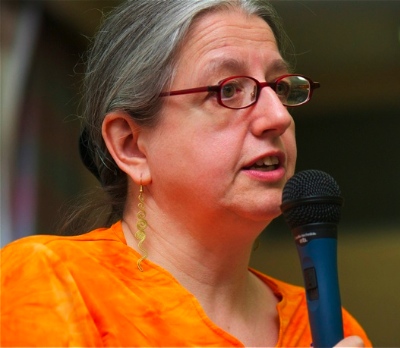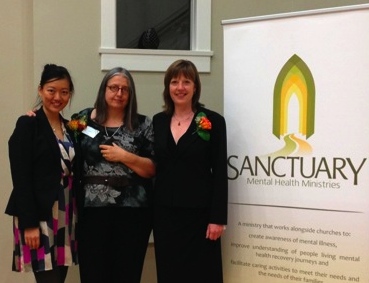Would you like to help faith communities deal with issues related to mental health recovery? Sanctuary Mental Health Ministries works to meet the needs of people living with mental illness – and will hold training sessions later this month for potential Community Mental Health Coaches.
‘How to Face Fear: 10 Bible Verses to Inspire Courage’ is the title of a blog post of a widely-read religious website. It is truly a blessing that the Bible has so many words on the topic.God in his wisdom knows how big fear is in our lives, and he responds.
And yet, and yet . . . imagine Amy. No, let’s not imagine Amy – let me come clean: imagine my story.
Some years ago, I was on a plane, and noticed that I was just a tad nervous. No big deal. I love flying. Next time, I got more nervous, until a few flights later, on a trip back from Germany, it was absolutely horrible. I can’t even describe what I was thinking, can only tell you that I was gripped by gut-wrenching, mortal fear.
Outwardly I tried to show nothing. The last thing I wanted to do was to make my then-seven-year-old daughter who was sitting beside me nervous too. I hauled out the religious text that I had packed in my carry-on and sought solace in it. I wrote out my fears. I did this, that and the other thing, my mind frantically looking for a way out of this nine-hour-long torture – nothing helped.
Did I pray? No. Was it because I usually don’t pray? No. I love praying! But my brain was completely short-circuited (that’s exactly what happens with panic and anxiety: the old reptile part of the brain takes over). The things that I tried to do to assuage my anxiety were haphazard, unplanned, unhelpful.
And that’s the problem. All the times the Bible says “do not fear” are true, absolutely true. But when my brain doesn’t work well, that truth often doesn’t sink in. Another thing that often doesn’t register in those moments is that there are people who might just be able to help. Then my afflicted brain tells me: “No one can understand me!”
What do you imagine happens when someone hears about my fears and then quotes this: “Even though I walk through the darkest valley, I will fear no evil, for you are with me; your rod and your staff, they comfort me.” (Psalm 24:3)
It’s quite possible that my inside reaction is, “Can’t you see? I am not comforted at all right now!” I might also feel inadequate, ashamed and guilty, telling myself that I can’t be having such a great relationship with God if a) I had not thought of praying and b) I don’t feel comforted by scripture.
The scripture quote that was meant to be helpful and pointing to God, the ultimate source of courage and solace, can have the effect of alienating me from my community and God.
And yet, and yet . . . when my brain functions well and heart and soul work together with that brain, I know for sure that this piece of scripture does tell the truth, that this truth speaks directly to me, and will comfort me. That is the struggle. God is my rod, my staff, my comfort – but sometimes I am blinded to that by my afflicted brain (not to mention the human imperfection that we all share.)
At Sanctuary, we celebrate everyone’s personal experience, and that includes our own. Sanctuary is a non-profit organization that works alongside churches to facilitate community mental health and support when individuals are dealing with mental health issues.
Part of my role is to coach a church community. So when I work with churches to help them build sustainable ways of improving the lives of people with mental health problems, I may tell my story. That’s what we humans do, we tell each other stories. As we share our stories, the paradox I touched on earlier – one moment scripture feels helpful, the other it doesn’t – can come to the forefront.
When a person who has seen God perform miraculous works for someone with depression wants that for everyone else, how do I respond? The Bible is full of miracles – but can we wait for them to happen to the person whose life is at risk? We need to look at both spiritual solace and the miracles of modern psychiatric medicine. These are the struggles we negotiate as Christian mental health professionals.
Do you have experience with mental health recovery? Is your faith important to you? Would you be interested in coaching faith communities to facilitate community action and change?


